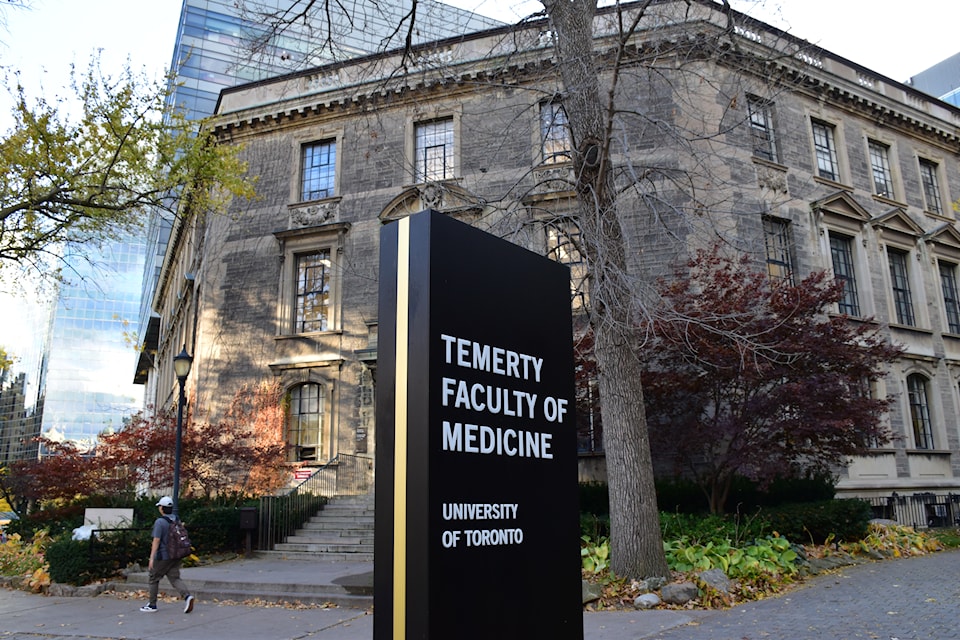Ontario Premier Doug Ford plans to ban international students from enrolling at Ontario medical colleges beginning in 2026, although there are only 10 currently in provincial programs.
He said the government is prioritizing medical school seats for Ontario students. At least 95 per cent of all undergraduate seats will be allocated to Ontario residents, while the rest will be allocated to students from the rest of Canada.
Ford said he found out local students are studying in countries like Ireland and the U.S. and are choosing to stay there, while students from around the world come to Ontario, allegedly taking spots that could be assigned to local candidates and return to their home countries.
"There were 18 per cent of students from around the world taking our kids' seats and then not even staying here and going back to their country and it's just not right. So now it's gonna be 100 per cent Canadian, 95 per cent Ontario. So, I am glad we are getting this done," Ford said in a press conference.
However, according to Ontario government data, only 10 international students were enrolled in medical schools out of a total of 3,833 students in the 2023-24 school year, less than a percentage point.
School of Medicine at Queen's University, an Ontario-based research university, said in a statement the recent policy changes apparently don’t reflect the student body.
"A majority of Queen's current medical students are from Ontario. We look forward to hearing more details from the province about admission changes," a representative from Queen's said.
Queen's University said its admission statistics for their incoming class show 80 per cent of all the students are from Ontario, 17 per cent of students are from western provinces and territories and only three per cent are from Quebec and eastern provinces.
There is no mention of international students by Queen’s.
The Northern Ontario School of Medicine, a Thunder Bay, Ont., medical school, said it doesn’t have any international students.
"As NOSM University does not accept international students to its undergraduate medical program, we are unable to provide comment on the implication of this policy for us," a representative from NOSM said.
Raisa Deber, professor emeritus from the University of Toronto and an expert in Canadian health policy, said there is no straightforward explanation for the policy's introduction.
Deber said the Ford Conservative government has been cutting university funding, and until recently, universities were seeking more international students.
"Let's bring in other students because we can make more money from them. And some of them are legit, but some of them are, you know, schools that you wouldn't want to go to," she said.
Deber said the intentions of international students coming to Canada might have been a reason for this policy's introduction.
"Are the international students coming because they actually want to learn something? Or are they coming because they want to immigrate? And this they see as an easy way in,” she said. “So, there has been an ongoing debate around the international student policies, because as you know, I'm Canadian, but I did my university training in another country called the United States.
“So, yeah, I was an international student, but then I came back," she said.
Deber said the Canada Health Act requires medically necessary care given in a hospital or by a doctor be publicly funded. The government sometimes tries to save money by closing the hospitals and not having the hospital beds needed.
"One of the things that governments did years back was they cut back on the number of doctors being trained because they didn't want to have to pay, because doctors, you know, like over 90 per cent of doctors’ income come from public funding," she said.
Deber says the government today realized what it did in past years and is now trying to solve that problem.
"What Ford is trying to do is say, 'Oh, yeah, we are going to solve your problem' by saying that all the doctors are going to stay in Ontario. So, the same thing, they also said, you're not allowed to take more than five per cent from people from outside," she said.
Deber said it’s unclear if it was a doctor shortage problem or just bad management causing problems for people.
"If I have somebody who's living, doesn't have food, doesn't have shelter, then yeah, is there a problem that they can't get access to medical care? Or is there a problem that they would not need so much access to medical care if they had food and shelter?" she said.
Deber has extensively covered the background of medical field problems, in her book titled Treating Healthcare.
"You can probably fill it up because there's a pretty limited number of people who can train, but you want to make sure that you're training good people because if I go to the doctor, I want to assume that that doctor knows what they're doing," she said, commenting on government's decision to reserve seats.
Ford also announced his government's plan to invest $88 million over three years to help more Ontario students become family doctors. This funding will cover the tuition and direct educational costs for students who commit to practicing family medicine in Ontario once they graduate.




